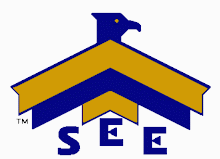
Everything DiSC Pulse: Improving Assessment UseMay 13, 2009
By Mark Scullard and Jeffrey Sugerman
By Mark Scullard and Jeffrey Sugerman
"Show me the value of assessments" is a common refrain heard by many training professionals. We thought we'd ask training participants to weigh in on the debate. We surveyed 2,362 recent participants of corporate training programs about their previous experiences with assessments in development programs. Overall, participants were positive about using assessments in training, giving high marks for usefulness and accuracy of information. We also identified two areas that can boost the value and impact of assessments: follow-up and boss involvement.
The Follow-Up Opportunity"Follow-up is priceless." It's something everyone in training and development can agree on. Follow-up gives participants the opportunity to practice the right way of doing things. Our study supports previous research showing the dramatic impact of processes that support practice and integration of the learning experience.Participants who said their organization followed up on the assessment felt the training was a better use of their time than people whose organizations didn't do any follow-up. When asked if the assessment helped to develop skills that would benefit their career in the long term, 94 percent of those people whose training included follow-up said yes. Among those whose training didn't include follow-up, that number dropped to 79 percent.The difference is even more pronounced when they were asked if the training made them more effective at their job, overall.
The follow-up group was overwhelmingly positive with 93 percent agreeing. For those without follow up, it was significantly less, with 73 percent agreeing. The impact of follow-up also could be seen when we asked if the assessment created a common language that helped the organization communicate better. Among those whose training included follow-up, 90 percent agreed. Only 68 percent of those without follow-up felt the assessment created a common language.Any skill improves with reinforcement. Some skills can be mastered in the course of a training session, and participants can take that skill into their job and use it effectively. But with complex skills, such as those taught through assessments, learning is ongoing and requires "perfect practice." Many times these skills are subtle and can be quickly replaced by old routines, whether because they're easier or simply because they are habits. Follow-up gives the nudge some of us need to keep practicing and developing the skill. And this practice is never more effective than when it is done on the job—making transfer of those skills more likely.Keep the Boss in the KnowKeeping participants' managers in the loop is another way to boost the power of the assessment and the training experience. Participants whose boss had a good grasp of what was taught in the training were more likely to view the class as a good use their time. The difference was more pronounced when asked if the training made them more effective at their job.
Of those whose boss was involved in the process, 90 percent said the training made them more effective; of those without boss involvement, 73 percent.But the boss' understanding of content wasn't the only important factor. Participants also gave higher marks to training effectiveness if they discussed the assessment with their manager. Among those who discussed the assessment, 91 percent said the training was more effective. That number dropped to 72 percent if they did not discuss it with their boss.Being able to talk with their boss about what they learned can give extra weight to the training, but it also gives the participant another check-in point. The manager can serve as a sounding-board for their new skills, giving reinforcement and, if necessary, correction. In addition, when their boss is in the loop, training participants have an additional level of accountability for the skills learned. When the boss isn't knowledgeable or just isn't involved enough to discuss the training, this can send the message that the training isn't important. Or that the boss is too busy to worry about whether or not new skills (and corporate mandates) are being practiced. After all, wouldn't the boss know about it if it really mattered? As training professionals, we should hope so.
Mark Scullard is the director of research at Inscape Publishing, a leading provider of training materials for the corporate market. He has more than a decade of research and data analysis experience in the development of psychological evaluation tools and methods. Scullard received his doctorate in psychology from the University of Minnesota, with a supporting program in statistics.Jeffrey Sugerman is the president and CEO of Inscape Publishing. He has more than 20 years of experience in senior management, marketing, and business development in the technology, training, and publishing industries. He holds doctorate and master's degrees in psychology from Washington University in St. Louis, and a bachelor's degree in psychology from Northwestern University.






No comments:
Post a Comment